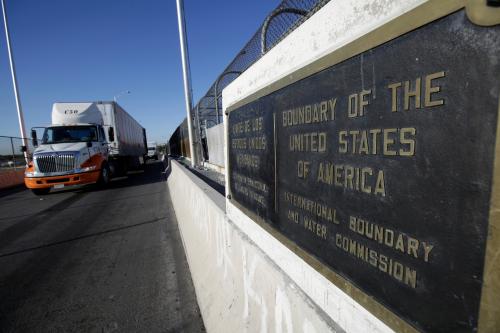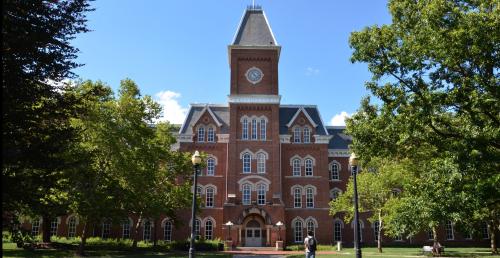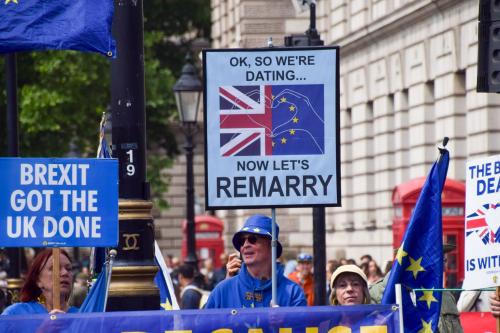When the Philadelphia Eagles and New England Patriots face off in the Super Bowl this weekend, the battle on the field between their revolutionary cities carries over from nearly 300 years of economic sparring—from fighting over seaport supremacy in the 1700s to the Amazon HQ2 shortlist announced last month. Once competing factory hubs, Philly and Boston both pivoted to become “Knowledge Capitals” among global cities, with common specializations in advanced industries such as life sciences, education, research, and financial services.
Or more like Philly squabbles about having the first university versus the oldest college, while Boston looks imperiously down from its much larger pile of NIH grants and championship rings, pointing to the scoreboard.
As a third-generation Philadelphian, I am completely biased in favor of the scrappy underdog here, as well as cheesesteaks over chowder. Alas, the data doesn’t lie. Boston’s economic performance has outstripped my hometown over the past 10-15 years in virtually every measure. Sometimes the score is quite close, but Philly still comes up short on increases in growth, traded sector productivity, and wages; as well as amount of greenfield foreign direct investment, higher education attainment, and patents per capita.
In the trade game, Philly has been installing a promising new strategy focused on boosting services exports.
But in the trade game, Philly has been installing a promising new strategy focused on boosting services exports. Brookings research released last year forecasted that the national value of exporting services will exceed that of goods by 2020. Along with 19 other U.S. metros, Philadelphia has already passed the 50-yard line with 53 percent of its exports in services, buoyed by recent growth in financial management and R&D.
“We’ve seen the total value of services exports from our region double over the past decade while our numbers for goods exports have held steady,” says Josh Sevin, the acting executive director of the Economy League of Greater Philadelphia, which helped develop the region’s export plan. “If Greater Philadelphia is going to significantly grow its export economy, expanding services exports has to be a big part of it.”
This playbook focuses heavily on exporting life sciences, R&D, and professional services, and resulted in securing a $1 million federal grant last summer to help execute the export plan. Philadelphia International Medicine, a consortium of seven area medical centers, builds relationships with foreign health care providers and patients, signing several agreements with counterparts in the Dominican Republic and Mexico within the last year. The region’s International Design and Engineering Consortium, facilitated by the World Trade Center of Greater Philadelphia, unites local firms to showcase strengths in architectural, engineering, and construction industries and engage international business partners. And the Philadelphia Bar Association has a formal partnership with its counterpart in Lyon, France to promote trade and education exchanges between the cities both known for biotech and life sciences, ginning up international visibility and economic opportunities.
Philly isn’t the only metro area trying a new export services offense, alongside others in the Global Cities Initiative. Leaders in Kansas City developed “KC Global Design” to advance the international potential of its world-class architecture and engineering cluster. In Des Moines, leaders launched insurance and agriculture technology accelerators and a Global Insurance Symposium attracting innovators from around the world, part of its strategy to grow its service specializations. Leveraging Atlanta’s distinctive information technology service specializations in fintech, cybersecurity, and digital supply chain are major pillars of that region’s global trade and investment plan.
So while I’m happy that more of the world is sharing my boyhood joy of strawberry Bassetts Ice Cream through exports from Philly to Asia, we can’t use yesterday’s goods export game plan for global economic competitiveness. This means more balanced local, state, and federal strategies that acknowledge and prioritize support for services exports in both trade policy and promotion. As we’ve noted before, federal action is ultimately required to address service export barriers like digital trade rules, cybersecurity, physical presence and staff relocation requirements, and foreign equity limits.
In the meantime, more cities can follow the lead of Philly and other metros taking tangible steps to ensure their smaller and mid-size services firms are positioned to take advantage of global trends, rather than just playing defense. Although on this particular Sunday, playing defense will be pretty important. Go Eagles.
The Brookings Institution is committed to quality, independence, and impact.
We are supported by a diverse array of funders. In line with our values and policies, each Brookings publication represents the sole views of its author(s).







Commentary
In the Super Bowl of trade, a winning playbook is services
February 2, 2018